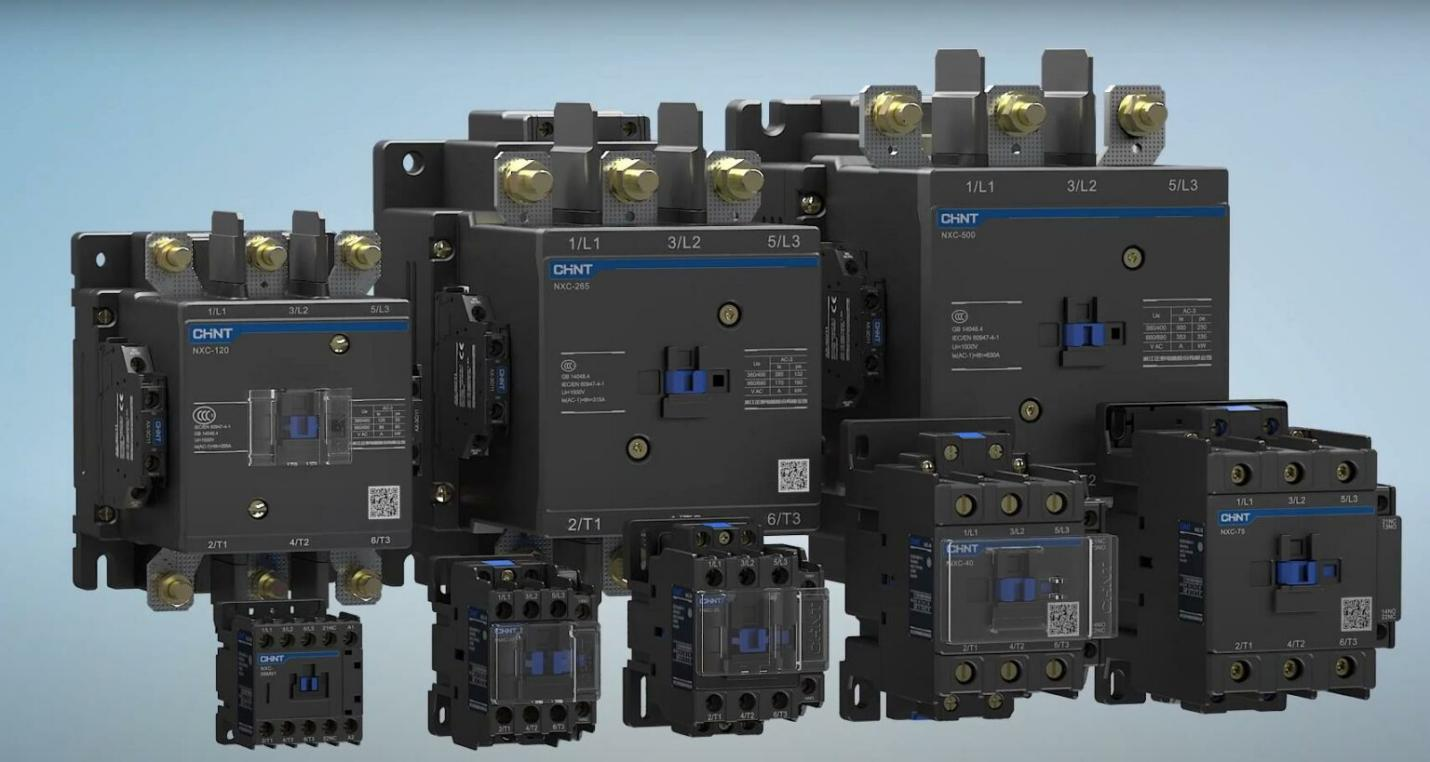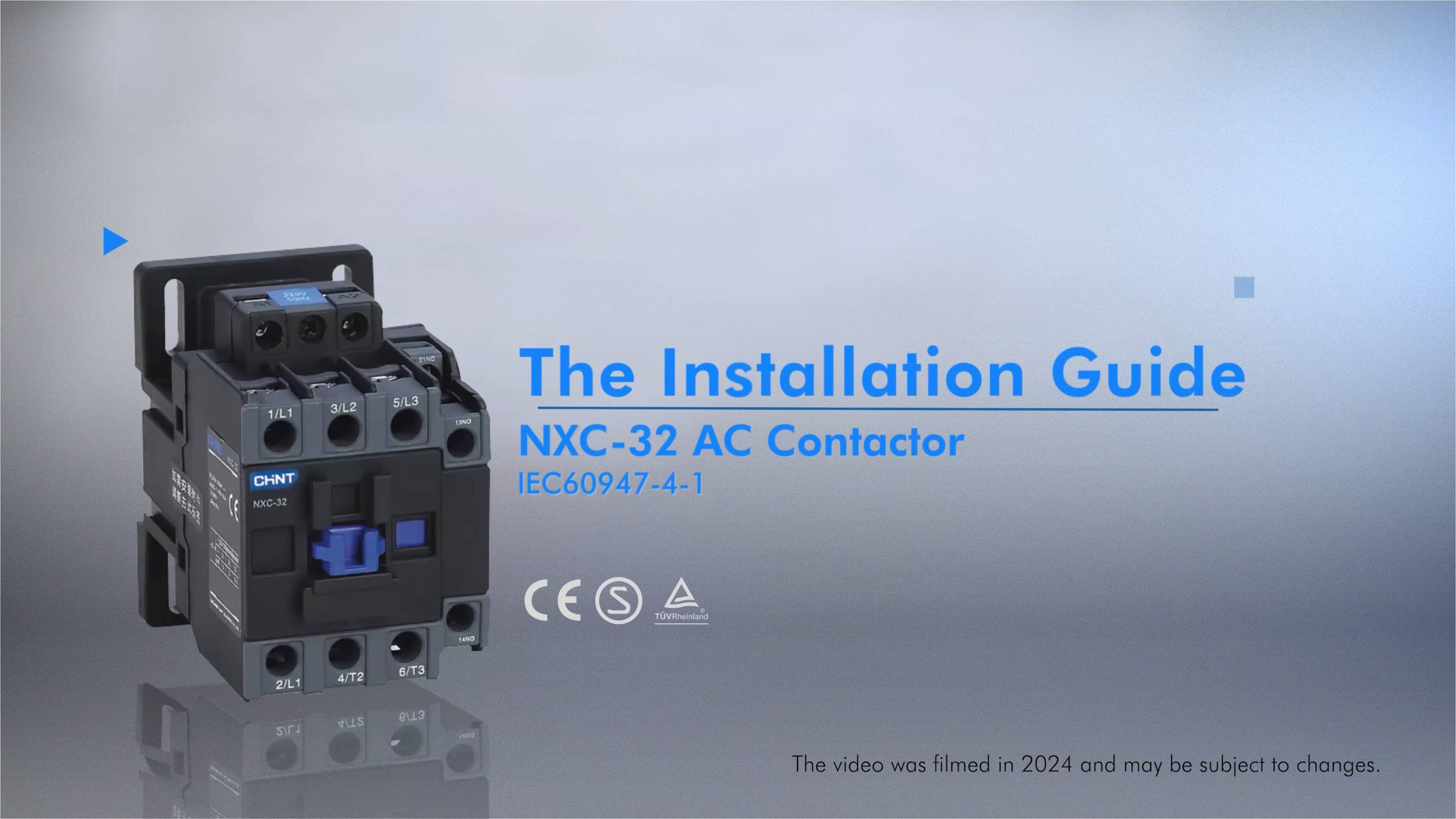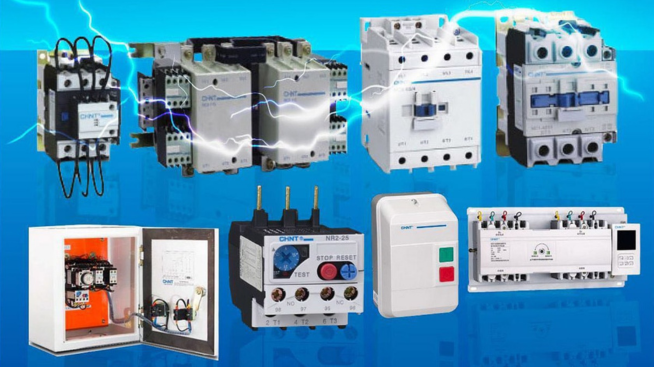AC contactors are reliable electrical devices. They control the flow of power to equipment. These devices work like switches but handle much higher current loads. They are essential in many electrical systems as they help control high-power electrical loads safely.
The devices protect both equipment and people from potential electrical hazards. Without them, managing heavy electrical loads would be dangerous and impractical.
Uses of AC Contactors
AC contactors have many applications across different industries. The following uses show how versatile these devices really are:
1. HVAC Systems
HVAC systems rely heavily on AC contactors for proper operation. The AC contactor connects power to the compressor. It also connects power to the condenser fan motor.
When your thermostat calls for cooling, it sends a signal to the AC contactor. The AC contactor switch then closes its contacts to supply power to the unit. Without a functioning contactor, your air conditioning system won’t operate.
2. Industrial Machinery
Factories use AC contactors to control powerful motors and equipment. Manufacturing plants need reliable power control for production lines. Contactors allow machines to start and stop safely.
They protect expensive equipment from power surges and overloads. Industrial contactors are more robust and can handle frequent cycling and heavier loads.
3. Lighting Systems
Large commercial lighting systems depend on AC contactors for operation. They control multiple lighting circuits from a central location. This enables automated control of many lights simultaneously.
Shopping centers, sports arenas, and office buildings use lighting contactors. They enable energy-saving features like timed shutoffs.
Warning Signs of AC Contactor Failure
AC contactors can develop problems over time. Recognizing failure signs early can prevent system damage. Here are the common AC contactor failure symptoms to watch for:
1. Unusual Noises
Strange noises often signal contactor problems. Buzzing or humming sounds aren’t normal. These noises suggest the magnetic coil may be failing. Sometimes dirt or debris causes AC contactors to make unusual sounds. A properly functioning contactor should operate quietly.
2. Frequent Cycling or Failure to Engage
A contactor that rapidly turns on and off is a sign of trouble. This condition, called “chattering”, stresses the system. It may result from voltage problems or coil damage. Sometimes the contactor for AC won’t engage at all. This leaves your equipment without power. It requires immediate attention to prevent further issues.
3. Burnt or Pitted Contacts
Contact points can become damaged over time. Visual inspection may reveal burnt marks or pits. These damaged contacts can’t conduct electricity properly. They create resistance which generates heat. Burnt contacts often result from electrical arcing. Once contacts are damaged, the contactor needs replacement.
4. Overheating or Burning Smell
An overheating contactor presents serious safety concerns. You might smell a distinct burning odor. The contactor housing may feel unusually hot. This overheating can melt insulation or plastic components. It indicates excessive current draw or internal failure.
5. System Not Turning On or Off
When equipment won’t power on or shut down, check the contactor. A failed contactor can’t complete or break the circuit. This means your system stays permanently on or off. The problem may be intermittent at first. Eventually, the system fails completely. This symptom often appears alongside other warning signs.
Resolving AC Contactor Issues
Addressing contactor problems promptly prevents costly damages. Here are approaches to resolve common contactor issues:
1. Regular Maintenance
Preventive maintenance extends contactor life significantly. Clean contacts periodically to remove dust and debris. Check for loose connections during maintenance visits. Inspect coils for signs of wear or damage. Regular maintenance is crucial. It catches problems before they cause failures.
2. Checking Electrical Connections
Loose connections cause many contactor issues. It’s recommended to secure all the loose wires. Look for signs of corrosion or heat damage. Verify that the voltage supplied matches the contactor specifications. Use a multimeter to check continuity across contacts. Also, tighten any loose terminals carefully.
3. Replacing a Faulty Contactor
When a contactor fails, replacement is usually necessary. Choose an exact replacement when possible like CHINT’s AC contactor. Turn off all power before attempting replacement. Document wire positions before disconnecting anything. Install the new contactor following manufacturer guidelines. Test the system thoroughly after installation.
4. Seeking Professional Help
Some contactor issues require expert attention. Licensed electricians have the proper tools and knowledge. They can diagnose complex electrical problems safely. Professionals can recommend the right replacement parts. They also ensure that installations meet code requirements. Safety should always be the top priority.
Conclusion
AC contactors are crucial components in many electrical systems. They control power to important equipment safely. Recognizing warning signs of failure helps prevent costly breakdowns. Regular maintenance extends contactor life significantly.
The reputed brand CHINT offers reliable contactors that meet industry standards. Its products are known for durability and performance. Visit CHINT’s website to explore its complete range of contactors and electrical solutions. Get in touch with them to find the right product for your specific application.







